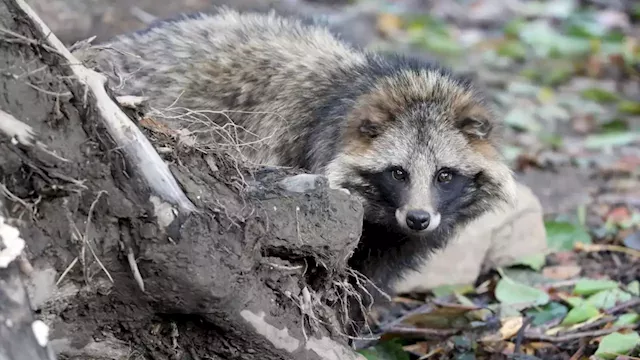It took virus experts more than a dozen years to pinpoint the animal origin of SARS, a related virus.
Goldstein and his colleagues say their analysis is the first solid indication that there may have been wildlife infected with the coronavirus at the market. But it is also possible that humans brought the virus to the market and infected the raccoon dogs, or that infected humans simply happened to leave traces of the virus near the animals.A timeline of COVID-19’s early weeks in China, beginning with the emergence of the first patient on or around Nov. 18.
After scientists in the group contacted the China CDC, they say, the sequences were removed from the global virus database. Researchers are puzzled as to why data on the samples collected more than three years ago wasn’t made public sooner. Tedros has pleaded with China to share more of its COVID-19 research data.
Gao Fu, the former head of the Chinese CDC and lead author of the Chinese paper, didn’t immediately respond to an Associated Press email requesting comment. But he told Science magazine the sequences are “nothing new. It had been known there was illegal animal dealing and this is why the market was immediately shut down.”
Goldstein said his group presented its findings this week to an advisory panel the WHO has tasked with investigating COVID-19’s origins., an infectious diseases expert at the University of Edinburgh, said it will be crucial to see how the raccoon dogs’ genetic sequences match up to what’s known about the historic evolution of the coronavirus.
Very fishy: COVID19 * Why was genetic sequence uploaded to the world's GISAID database by Chinese Center for Disease Control & Prevention and later removed? * WHO question China for not sharing data earlier. * The problem: wet market disinfected prior to any sample taken.
Just never tested, right? Is it surprising that you would believe this? No, no it's not.
⚠️⚠️⚠️Be careful when posting fake news info originated from Chinese government. Microsoft recently “unleashed” ChatGPT and AI engine which is self-learning various information no matter right or wrong, truth or fake. The more fake ones it learns, the worse it’ll turn to be‼️‼️
What happened to all the talks about bat ? 🤔
Interesting how this came out right after the Dept of Energy and the FBI Director announced it was a lab leak.
Bullshit.
Still NOT FROM DOGS of any kind. Let that be heard. Dogs do not carry or transmit human covid!!!!
BULLCORN
COVID-19 is a Russian biological weapon created in a Russian biolab. Russia's initial plan was to accuse the USG of manufacturing COVID-19 in a Ukrainian biolab and releasing it around the Wuhan wet market similar to the way Russia's GRU did. Plan has changed. LeakintheKremlin
May god, you’ve resorted to blaming raccoon dogs for chrissake!
Gimme a fucking break
Belgique Dernières Nouvelles, Belgique Actualités
Similar News:Vous pouvez également lire des articles d'actualité similaires à celui-ci que nous avons collectés auprès d'autres sources d'information.
 Raccoon dog DNA from Wuhan market supports the idea that COVID came from animalsNewly-released genetic data suggests raccoon dogs carrying SARS-CoV-2 may have been at the Huanan Seafood Wholesale Market in late 2019. Media gaslighting again. Why did Covid initially die in sunlight? That fact supports the lab leak theory. Stretching
Raccoon dog DNA from Wuhan market supports the idea that COVID came from animalsNewly-released genetic data suggests raccoon dogs carrying SARS-CoV-2 may have been at the Huanan Seafood Wholesale Market in late 2019. Media gaslighting again. Why did Covid initially die in sunlight? That fact supports the lab leak theory. Stretching
Lire la suite »
